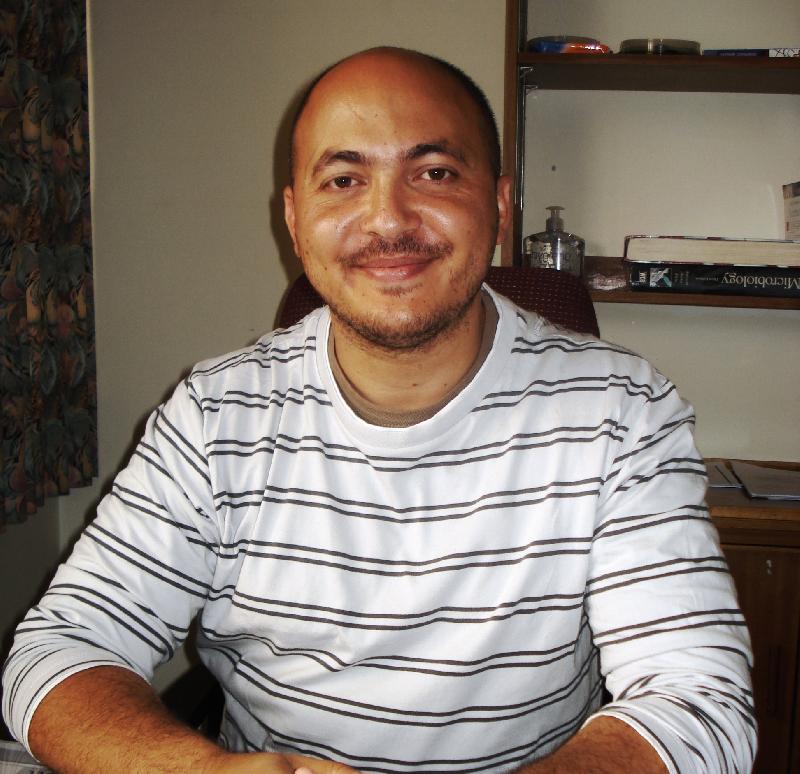
Dr Earl Prinsloo, a former postdoctoral fellow and current junior lecturer in Biotechnology is part of a team of scientists at Rhodes who are conducting research into cancer, malaria and trypanosomiasis as part of the aims of the Biomedical Biotechnology Research Unit (BioBRU).
Dr Prinsloo, who has worked in the Department of Biochemistry, Microbiology and Biotechnology since 2007, said he relishes his involvement with BioBRU, which studies stress biology, and conducts research into the molecular level of stress responses in cells. Dr Prinsloo initially became involved in stem cell and cancer research when he joined the Chaperone Research Group, as a postdoctoral fellow under the mentorship of Prof Gregory Blatch.
“My role as a postdoc scientist continued from the Chaperone Research Group into BioBRU and allowed me to develop my research focus of signal transduction in mammalian cells. My research centres on elucidatingfundamental chaperoned signalling pathways in normal cells, stem cells, cancer cells and cancer stem cells,” he said.
In researching the role of chaperones in signal transduction, Dr Prinsloo likened the diseased pathways to a train track, on which a train would normally move from point A to point B, in a healthy situation, but in the case of cancer cells, “the train has 10 tons of baggage hurtling on to point C”, he said.
Acting director of BioBRU Dr Adrienne Edkins described the work conducted under BioBRU as having a view to identify and exploit possible differences between the stress response mechanism of normal and diseased cells for drug development. “The question is whether we can find exploitable differences that will allow us to selectively target cancer cells,” she said. Dr Edkins said BioBRU also has systems which enable the production of drug targets, which is imperative in this type of research. “This is a multi-faceted approach which makes it very effective. A major limit to drug development is whether or not you can produce enough of the drug target, and we are able to do that here,” she said.
Dr Prinsloo said one of the factors which had played an important role in the success of BioBRU to date was the fact that the research group consisted of relatively young scientists, who were mentored outstandingly by Prof Gregory Blatch, former director of BioBRU. “This has allowed us to grow BioBRU from its original vision while still maintaining its initial goals,” he said.
Dr Edkins described BioBRU as being about “more than just science, it’s about collegiality”. She said that during the recent annual BioBRU retreat, during which students and staff come together to share their research interests and progresses, she had been “hugely impressed by the cross fertilisation of ideas and bonding that happened. This is about creating people who are serious and passionate about science,” she said.
Story and photo by Sarah-Jane Bradfield.
Photo: Dr Earl Prinsloo
